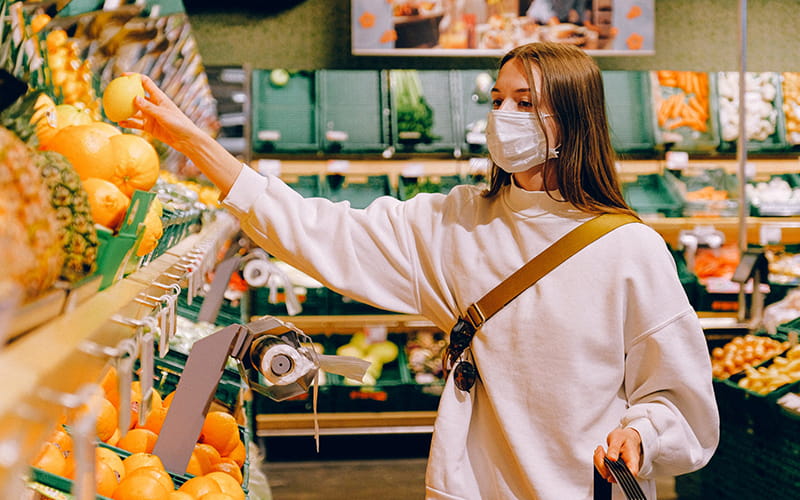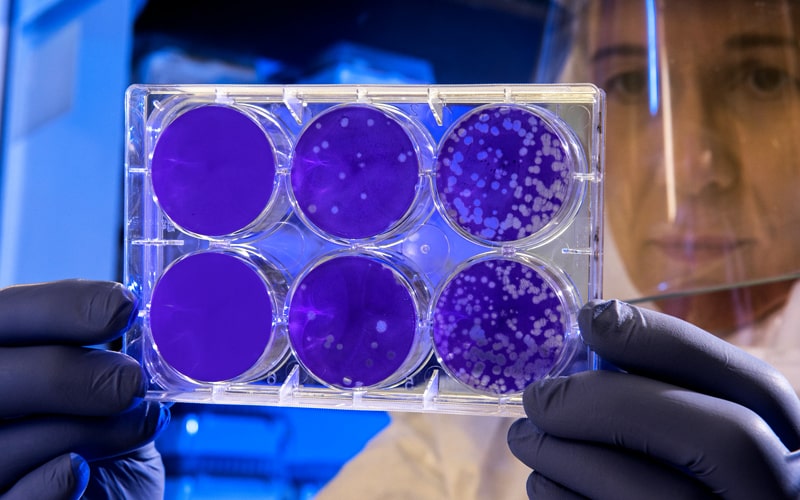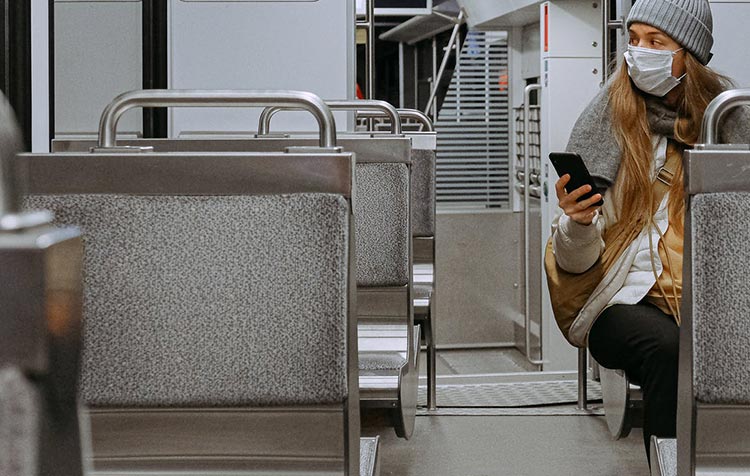What coronavirus lessons can we learn for the future from the pandemic? Rarely have we experienced the effects of human action, even in Germany, so strongly and so closely as we are currently. Border closures, shutdowns of public life, overburdened hospitals and food providers, deaths, curfews and quarantines. I, too, am at home, of course - and am thinking about what conclusions I personally and we as a global society can draw from the pandemic, which is likely to last for a long time.
Here, therefore, we would like to introduce you to what each and every one of us should learn from the coronavirus and show that a pandemic, while catastrophic, still holds opportunities for us.
Notice: These are the conclusions which, in MY OPINION, we should draw from the corona virus. In the end, however, everyone must decide for themselves what he/she learns from this time of crisis.
Coronavirus findings and learnings for the future
On the one hand, I want to make myself aware of the extent to which we humans are responsible for the Corona crisis. On the other hand, I also want to ensure that many people in our society are open to questioning previous habits. Because that's the only way we can really grow from this exceptional situation.
As promised, I now present to you the insights I am gaining for myself from the coronavirus pandemic.
1. one's own actions have a global influence
We live in a World in which almost 8 billion people interact permanently and globally with each other and move across borders in the process - this naturally also applies to diseases. The origin of the coronavirus may be in Wuhan (China)₁, but its rapid spread means the pandemic now requires global solutions.
How we dress and get around, what we eat and consume. Everything we do in our everyday lives has a global impact on our environment. People who eat a lot of meat make a massive contribution to the environment. Deforestation of the rainforests (e.g. in Brazil) - and those who travel a lot by plane promote the climate change. It is important to draw this conclusion once and for all from the momentary exceptional situation and to make a conscious decision through a conscious sustainable life to strive for improvement. Also for the benefit of their own children and grandchildren.
2. "Higher-faster-further" only works in the short term and conscious action in the long term.
"We live in a dangerous age. Man masters nature before he has learned to master himself." This quote by Albert Schweitzer fits like a glove, especially in the Corona crisis. The economic slump as a result of the corona virus is costing Germany alone around 730 billion euros.₂ That's just how it is when you live at the expense of nature. The Earth Overshoot Day moves a little closer to the beginning of the year every year. Translated, this means Earth Overload Day - the day in the year when we humans have consumed more renewable resources than the Earth can reproduce in the entire year. In 2019, Germany's Earth Overload Day already fell on May 3.₃ So we live on credit and must learn to curb selfishness, greed and avarice. That should be a valuable lesson from the pandemic.
Here are some articles that will help you take some speed out of your everyday life:
- Minimalist living - tips & tricks
- Slow Fashion - Being Environmentally Conscious with Fashion
- The start into the Zero Waste lifestyle
- Reduce food waste - Here's how
We should all use the time in "quarantine" to slow down a bit.
3. there is nothing more important than your own health

"Health is not everything, but without health everything is nothing." - the German philosopher Arthur Schopenhauer once said. During the Corona pandemic, at the latest, everyone should have become aware of this. After all, the run on respirators and disinfectant spray was gigantic. What good is a bulging bank account and a fancy sports car if you are seriously ill?
Above all, the key to a healthy life is a balanced lifestyle and a rock-solid personal attitude. Here are some articles that will help you:
Tip: You can get more tips and tricks for long-term health in the Health Blog.
4. solidarity & respect are (always) appropriate
Solidarity and respect are human values and trumps. Not only in times of the Corona crisis, but in general. But it is precisely when not everything is available 24 hours a day and seven days a week that the true face of our society is revealed. And so hoarding and hoarding we actually share toilet paper, pasta or condoms in the "end of days" mood, instead of sharing such things fairly with each other. But I think it's great how the pandemic is welding many people together - in Italy, for example, people are playing and listening to music together on balconies to distract each other from the frightening and unfamiliar situation.
My personal coronavirus insight is also a massively increased respect for the people who keep public life running every day - not only during the crisis. mail carriers, grocery store employees, and especially doctors. The coronavirus demonstrates the importance of a functioning power supply, our healthcare system, and everyone involved. Investing in advances in medicine, as well as new vaccines and treatments, are all vital tools in the fight against future disease outbreaks.
5. digitization must be driven forward
Without the Internet, the forced, social distance would certainly be unbearable for us humans. Digitization enables us to continue doing our work despite the curfew. And the more digitally positioned a company is, the more unbiased it will be when it comes to the Corona crisis. This should be an important lesson from the Corona virus, especially for German companies, organizations and, above all, the German state.
The Home office makes the working world more sustainable and environmentally friendly - the more people are allowed to work from home, the better.
Tip: At Energy Blog you'll find lots of tips on how to use technical devices in an even more (environmentally) conscious way. For example, learn how to surfing the internet sustainably.
6. environmental protection and species protection are essential (for our health)
We are no longer allowed out of our homes - and feel just like farm animals such as cows, pigs or chickens in the Factory farming feel every day: uncomfortable. The number of environments where contact between humans and animals has increased exponentially. This includes the illegal wildlife trade in pangolins and bats, which is believed to be the cause of the coronavirus.₄ Because contact is increasing, so is the risk for viruses to emerge and spread. The capitalist agricultural and food economy is thus the cradle of new pandemics, so to speak.
We humans all have Environmental problems of our time themselves to be responsible. Whether air pollution, climate change or Plastic waste in the environment. And all of them promote the emergence and spread of diseases. But while the coronavirus is circulating around our world, our (economic) destructive frenzy is suddenly coming to a halt. In China alone, CO2-emissions due to the virus decreased by 25 percent.₅
Here are some articles with which you yourself can contribute to more environmental and animal protection:
- Vegan diet - tips for the start
- Sustainable souvenirs on vacation
- Connection between nutrition and climate
- Do animals have emotions and a sense of pain?
Notice: Illegal poaching, for example, would not exist if all people lived vegan. If you agree, feel free to write a comment.
7. we do not control nature, because ...
... we are, like all living beings, just a part of it. And this is a part which robs the planet and other living beings on it. Currently, nature only raises its index fingerto make us aware that we can no longer go on living like this.
We can and should continue to invest more in improving our health systems. Advances in medicine are vital weapons - but they are never the panacea. Since all of the environmental and societal problems of our time are a consequence of human actions, the lasting solution in the fight against pandemics like SARS-CoV-2 lies primarily in adjusting our behavior.
Coronavirus findings - Drawing personal conclusions and setting an example

At a time when we can't just fly off on vacation, go to the movies or have wild parties, we suddenly realize how well off we (in the Western industrialized nations) actually are. We live in luxury - mostly at the expense of the environment. It cannot be a permanent "normal state" to jump into the heated pool and jet around the world every day. Instead, a conscious but equally eventful and desirable lifestyle can be the solution.
But we still have to do everything against the spread of the virus. Therefore, please avoid personal contact for the time being. It is best to leave your home only for necessities - for example, to get some fresh air or to go shopping. We humans have maneuvered ourselves into this pandemic and can overcome challenges like this and similar problems together. The important thing is to learn from our own mistakes.
Do you have questions or own suggestions around the conclusions from the Corona crisis? Then just write me a comment.
Stay healthy and sustainable,

PS.: In the Environmental protection blog you will find many more tips on sustainable living. For example, take a look at the article about the Tips for environmental protection in everyday life.
References:
₁ WHO (2020): Pneumonia of unknown cause - China, available at https://www.who.int/csr/don/05-january-2020-pneumonia-of-unkown-cause-china/en. [23.03.2020].
₂ FOCUS Online Group GmbH: Wirtschaftsforscher: Corona-Krise kostet Deutschland bis zu 730 Milliarden Euro (Stand: 23.03.2020), available at https://t1p.de/5fjp. [23.03.2020].
₃ Germanwatch e. V.: Earth Overload Day (as of July 22, 2019). https://www.germanwatch.org/ en/overshoot. [09.08.2019].
₄ M. Hokan; WWF Germany: COVID-19: Species conservation for global health (as of Feb. 21, 2020), available at https://blog.wwf.de/covid-19-tiere. [23.03.2020].
₅ S. Shafy: Coronavirus reduces CO2 emissions in China by 25 percent, available at https://www.spiegel.de/wissenschaft/mensch/co2-emissionen-in-china-sinken-ist-das-coronavirus-gut-fuers-klima-a-3bb248ba-5177-4a3a-abcb-9a67c7e1ad07. [23.03.2020].





